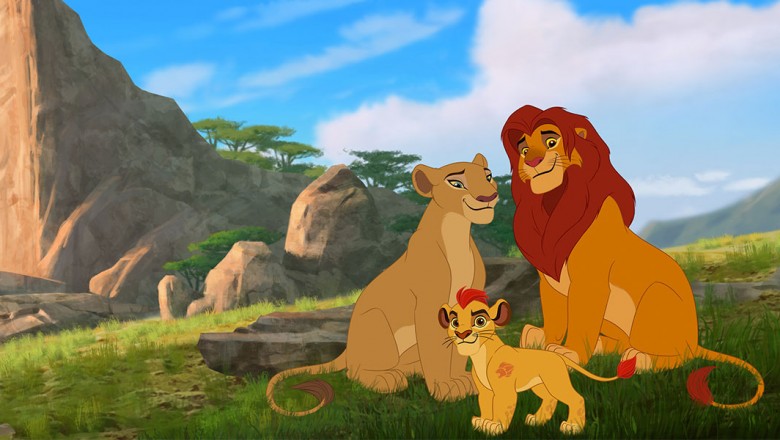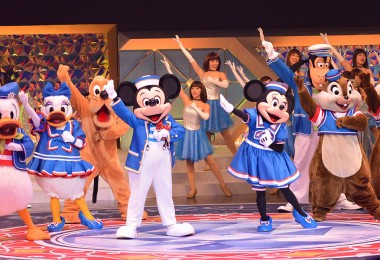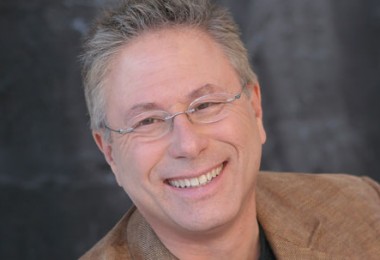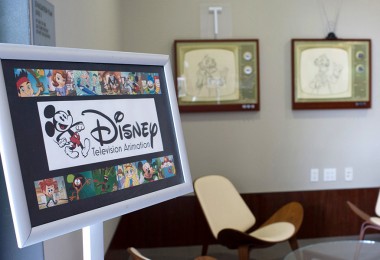Disney’s The Lion King… From the first sight of Mufasa on Pride Rock to Simba songfully declaring, “I just can’t wait to be king,” the film is a true classic in the Disney canon, beloved by Disney fans since its release in 1995.
Now Disney Junior aims to welcome a new generation of fans to the Pride Lands. The Lion Guard: Return of the Roar is a family movie event, premiering this Sunday, November 22 at 7 p.m. ET/PT on Disney Channel, that introduces Kion—Simba and Nala’s second-born cub—as he discovers his destiny: to lead the Lion Guard, a team of the Pride Lands’ fiercest, bravest, fastest, strongest, and keenest of sight.
The Lion Guard’s executive producer, Ford Riley (Special Agent Oso), wanted the new TV movie and series to feel like it was rooted in the story of The Lion King. He went back into the original film’s history and came up with the idea of a “Lion Guard” that’s tasked with protecting the Pride Lands. “I developed the idea that the Lion Guard goes back generations,” Riley explains. “Kion is the second-born. He’s not going to grow up to be the king—his duty is to be the leader of the Lion Guard.” Simba, Riley points out, didn’t have siblings who could have led the Lion Guard in his generation. And The Lion King’s iconic, infamous second-born cub, Scar, used his “power of the roar” to follow the path of evil.
While the story for The Lion Guard stems from the epic storytelling of the original animated classic feature, Riley found inspiration closer to home. He’d been approached by Disney Junior to develop a series that continues the adventures of the Pride Lands, and he was struck by the idea of an “imaginary super hero team” his son and his friends had created. Riley conceived of a Lion Guard comprised of different animals—not just lions. “It’s a very diverse group,” he notes. “Bunga, the honey badger, is the bravest. Fuli, the cheetah, is the fastest. Beshte, the hippo, is the strongest; and Ono, the egret, is the keenest of sight.”
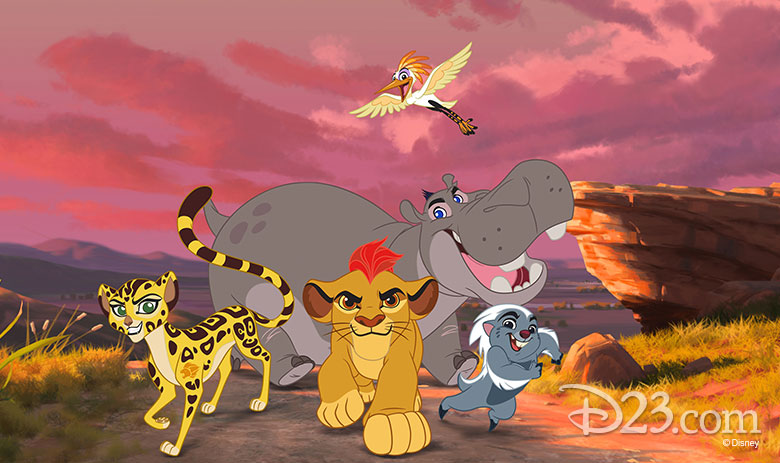
The African savanna that Kion and his friends protect looks like the savanna Disney fans remember wildebeasts stampeding across. The Lion Guard’s director, Howy Parkins (Jake and the Never Land Pirates), says that in re-creating the movie’s look for television, “The backgrounds have to look like The Lion King. We were lucky we could get Barry Atkinson, who painted on The Lion King.” Parkins also credits the series’ production designer, Plamen Christov, for The Lion Guard’s rich, transportive visual style.
A team of Education and Science experts at Disney’s Animal Kingdom advises Riley and Parkins on every member of the Pride Lands population. “We want to play within the rules of nature,” Parkins says, so the Animal Kingdom group reads every script and advises on whether the characters act true to life. Some of the factoids they uncover inspire plot twists and add depth to the characters. Fuli, the cheetah, may be the Pride Lands’ fastest animal—but only in short bursts and in straight lines. Details like that, Riley and Parkins point out, create complications that make their jobs a little easier—not to mention more fun.
And while children of the ’90s embraced the worry-free concept of “Hakuna Matata,” Riley and Parkins have worked with Swahili expert Sarah Mirza to inspire new catchphrases. “Zuka Zama” is sure to become a playground mantra for kids—and a pep talk for adults—with its spirit that essentially translates to “pop up and dive in” According to Riley, “Ninety percent of our characters and their names are derived from Swahili words.”
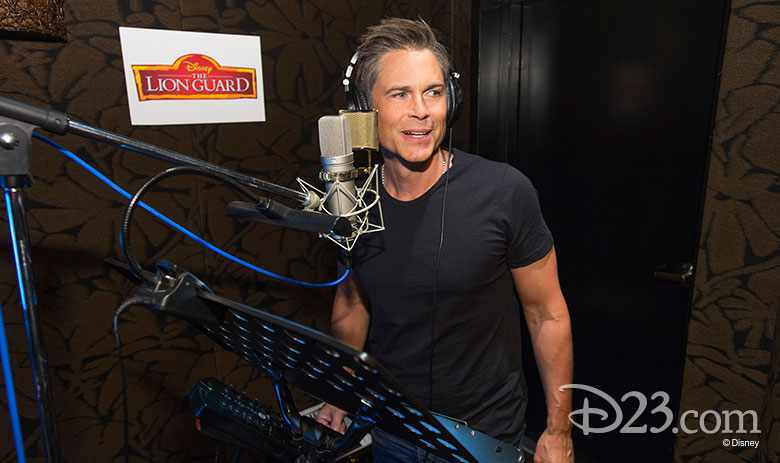
Among those character names are two familiar ones: Mufasa and Pumbaa. Parkins and Riley were thrilled that James Earl Jones and Ernie Sabella have returned to bring their inimitable voices to the roles. Parkins adds that the film’s younger cast—which includes Max Charles as Kion, Joshua Rush as Bunga, Atticus Shaffer as Ono, Diamond White as Fuli, and Dusan Brown as Beshte, in addition to Rob Lowe and Gabrielle Union as Simba and Nala—“brings a lot of life to the show.” You can see the young actors showing that “Zuka Zama” spirit in this behind-the-scenes look at the recording process:
But, of course, a movie event based on The Lion King can’t just look like The Lion King. It has to sound like The Lion King,” Parkins stresses. He says that songwriter Beau Black (Miles from Tomorrowland) and composer Christopher Willis (Mickey Mouse) have created songs that make you stop and wonder if they were in the original movie. Willis read the movie script, Riley explains and, “Just reading it, he composed a suite of music that involved African chanting and heroic themes. Before we even had picture back, he’d created this sort of score.
“Most of the time [in television animation] we start with a little plant and we water it… and it starts to grow and you kind of gain your audience after you air,” Parkins says. “This… this is huge.”
Don Hahn, who produced the original feature film, admits that he and his fellow filmmakers had no idea while they were making The Lion King that it would turn into the worldwide phenomenon that has inspired theatrical shows, theme park experiences, and now a TV movie and series. “You’re so involved in making the movie that you just don’t see that,” Hahn says. “The story is based on Hamlet… it’s based on the Bible story of Joseph… in Africa… with Elton John… I mean, come on, it sounds ridiculous! It’s as ridiculous as rats in a kitchen for Ratatouille,” he laughs.
“But you know those movies work because they have a heart to them and they have a team of people that want to breathe life into those characters. It’s the same today,” Hahn adds. “We’re still talking about this today because there’s another team of people breathing life into these characters again. And for me, as a producer and a guy who was around for the original movie, that’s pretty thrilling.”


